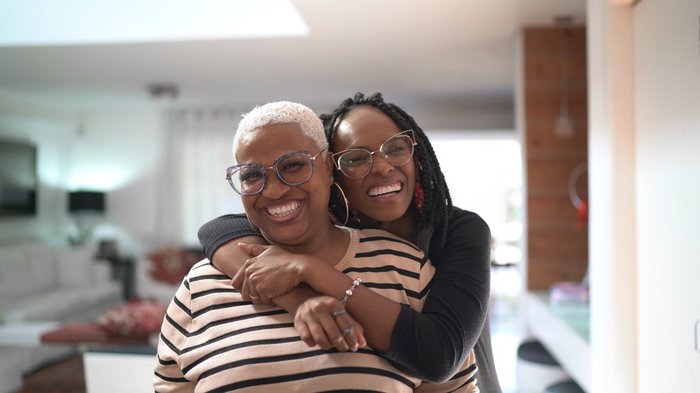What is a kidney transplant?
Kidney transplantation is a treatment for severe kidney disease. It involves an operation to replace your damaged kidneys with a new kidney from either a living or deceased donor.
What is the transplant list?
Patients who are suitable for a kidney transplant, and who have completed their assessment tests, go on a waiting list.
People on this list are waiting for a kidney to be donated by someone who has died (deceased donor).
The transplant waiting list is not a normal list. It is not a case of first come, first served, but rather finding the best match. Children under 18 get top priority so their wait will be shorter. You become a higher priority the longer you wait.
How do I get on the transplant list?
Your kidney team will talk to you about whether a kidney transplant could be a treatment option for you. Not everyone will be suitable for a transplant.
You need to be reasonably healthy to have the operation and for your body to cope with medications you will need to take to prevent rejection of the new kidney.
You will need to have a number of tests, known as a ‘work-up’, to check you are healthy enough to have a transplant and to help match you with the best donor. Your doctor will tell you if the tests show that you are not currently healthy enough for a transplant.
They will let you know if there is anything you can do to improve your health or whether another form of treatment is more suitable. Your kidney team will also make sure you will be able to cope with the emotional aspects of your transplant.
You can only join the transplant waiting list if you are already receiving or will be needing to start dialysis within a year. This is to ensure that you get the most benefit from the transplant and that transplants are allocated to those most in need.

Can I only receive a transplant from a deceased donor?
No, you may also be able to receive a transplant from a friend or relative. This is called a living donation. Talk to your kidney team about this, or see our information on donating a kidney through living kidney donation on the Kidney Care UK website.
How are donors and recipients matched?
Ideally, the kidney donor and kidney recipient’s blood type should match. Human leukocyte antigen (HLA) typing is used to match donors and recipients for transplants. Your HLA markers, found on the outside of your blood cells, should be reasonably similar, but don’t need to match completely.
When a potential kidney is found, your blood will be tested against the donor’s to check that they match and to reduce the chance of your body rejecting the kidney.
How long will I have to wait for a transplant?
The average waiting time is around two to three years. Some people can be called with an offer within a few days of joining the kidney transplant list, while others may have to wait many years.
According to figures from NHS Blood and Transplant, people of Asian heritage represent 18% of the transplant waiting list, but only 3% of deceased donors. People of Black heritage represent 10% of the waiting list and only 2% of deceased donors. Organ matching is better when the donor and recipient are from the same ethnic background. As fewer donors are from a non-White background, people of Asian and Black heritage tend to have to wait longer for a transplant because it can take longer to find a suitable match.
You may also have to wait longer if you have a rare blood group or if you are sensitised. Sensitisation happens during pregnancies, after having a blood transfusion or if you have had a previous transplant. Sensitisation means you could have a negative reaction to a larger number of potential donors, so it will be harder to find you a match.
You will be tested for the amount of sensitisation you have when you start the transplant assessment process.
What happens if I’m away from home?
You could receive a phone call to invite you for a kidney transplant at any time once you have been activated on the waiting list.
If you are ill, or go away on holiday, you may need to be temporarily suspended from the list. You will not lose any time points while you are off the list.
If you travel to the Indian subcontinent or Africa, you will remain suspended for eight weeks after you have returned, until virology tests have confirmed that you have not become infected with a virus such as hepatitis or HIV. For all other parts of the world, unless other factors put you at risk, you will usually be reactivated on the kidney transplant waiting list as soon as virology tests are found to be negative.

Do I have to be on dialysis before a transplant?
Ideally, if you are suitable, you should aim to join the transplant waiting list before you need dialysis (this is known as a pre-emptive transplant). This is more likely to be possible if you have a friend or relative willing to donate a kidney to you, as the surgery can then be planned in advance.
Is a living donation better than a deceased one?
Living-donor kidneys tend to last longer than those from a deceased donor, but this is not always the case and kidneys from a deceased donor still have excellent results.
How long will my transplant last?
On average, a kidney transplant from a living donor will last for 20–25 years, while a kidney from a deceased donor will last 15–20 years. This is very variable depending on the age of the donor and patient, and other medical issues. Please speak to your kidney care team to understand more about your own situation.
Rejection is when your body’s immune system recognises the kidney as coming from a different person and starts to ‘attack’ it. Rejection happens in around 10–15 of every 100 patients in the first year after a kidney transplant.

Will a transplant cure my kidney disease?
A successful transplant is a very good treatment for kidney failure. However, it will not cure the underlying cause of your kidney disease. Some kidney diseases can reoccur in the transplanted kidney and your kidney doctor will be able to discuss this with you.
Improvement in your kidney function will depend on many factors, such as the quality of the kidney you are given and any other conditions you may have. Many patients will still have some form of kidney disease, but a transplant aims to improve your quality of life and reduce the likelihood of you needing dialysis. Talk to your kidney team about how a transplant might benefit you to help you decide if you wish to pursue one.
Is there a limit on how many transplants I can have?
No – however, you may have to wait longer if you have had a transplant before as it becomes harder to find a match as you may be more sensitised. You will need to go through the same tests again to make sure you are healthy enough to receive another kidney.
Where can I find out more information?

Publication date: 09/2023
Review date: 09/2026